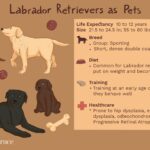Table of Contents
Pomeranians are small dogs with big personalities. To keep them healthy and active, it’s crucial to provide a balanced diet tailored to their specific needs. This comprehensive feeding guide for Pomeranian dogs covers everything you need to know about their diet, including portion sizes, feeding schedules, and nutritional tips.

1. Understanding Pomeranian Nutritional Needs: Feeding Guide for Pomeranian Dogs
Pomeranians require a diet that supports their high energy levels and small size. Their food should be rich in protein, fats, and essential nutrients to keep them healthy and vibrant.
- Protein: Essential for muscle development and overall health. Look for high-quality animal proteins like chicken, turkey, and fish.
- Fats: Provide energy and support skin and coat health. Healthy fats such as omega-3 and omega-6 fatty acids are beneficial.
- Carbohydrates: Offer a quick source of energy. Opt for whole grains and vegetables.
- Vitamins and Minerals: Ensure a balanced diet with necessary vitamins and minerals for overall well-being.
2. Choosing the Right Food: Feeding Guide for Pomeranian Dogs
When selecting food for your Pomeranian, consider their age, activity level, and health status. High-quality commercial dog foods or well-planned homemade diets can meet their nutritional needs.
- Dry Kibble: Convenient and helps maintain dental health. Look for small-sized kibble designed for toy breeds.
- Wet Food: More palatable and provides additional moisture. Ensure it is balanced and complements dry food if used together.
- Homemade Diets: If preparing homemade meals, ensure they are nutritionally complete. Consult with a veterinarian for a balanced recipe. For more guidance, visit the AKC’s guide on homemade dog food.
3. Portion Sizes and Feeding Schedule: Feeding Guide for Pomeranian Dogs
Proper portion sizes and feeding schedules are essential to prevent obesity and maintain a healthy weight. Pomeranians have small stomachs, so frequent, smaller meals are ideal.
- Puppies: Feed 3-4 times a day. As they grow, gradually reduce to 2-3 meals per day.
- Adults: Feed 2-3 times a day. Adjust portion sizes based on their activity level and metabolism.
- Seniors: Older Pomeranians may require fewer calories. Consult your vet for specific dietary adjustments.
Tip: Follow the feeding guidelines on the dog food packaging and adjust based on your Pomeranian’s individual needs. For more details, visit the ASPCA’s dog nutrition tips.
4. Healthy Treats and Snacks: Feeding Guide for Pomeranian Dogs
Treats can be a great way to reward your Pomeranian, but they should be given in moderation. Choose healthy, low-calorie options to avoid unnecessary weight gain.
- Fruits and Vegetables: Carrots, apples (without seeds), and blueberries are excellent choices.
- Commercial Treats: Opt for treats specifically designed for small breeds and ensure they are low in calories.
- Homemade Treats: Simple recipes using wholesome ingredients can be a good alternative. For more healthy snack ideas, visit the Humane Society’s guide on healthy dog treats.
5. Foods to Avoid: Feeding Guide for Pomeranian Dogs
Certain foods can be harmful or toxic to Pomeranians. Avoid feeding your dog the following items:
- Chocolate: Contains theobromine, which is toxic to dogs.
- Grapes and Raisins: Can cause kidney failure.
- Onions and Garlic: Can damage red blood cells and cause anemia.
- Alcohol: Even small amounts can be dangerous.
- Xylitol: Found in sugar-free products, it can cause hypoglycemia and liver failure.
6. Hydration is Key: Feeding Guide for Pomeranian Dogs
Ensure your Pomeranian always has access to fresh, clean water. Proper hydration is crucial for their overall health and helps prevent urinary issues.
- Tip: Regularly check and refill their water bowl. Consider using a pet water fountain to encourage drinking. For hydration tips, visit the VCA Hospitals’ guide on hydration for dogs.
7. Monitoring Weight and Health: Feeding Guide for Pomeranian Dogs
Regularly monitor your Pomeranian’s weight and overall health. Sudden changes in weight, appetite, or behavior can indicate underlying health issues.
- Tip: Weigh your Pomeranian monthly and keep a record. Consult your vet if you notice any significant changes. For more on maintaining your dog’s health, visit the PetMD’s guide on maintaining your dog’s ideal weight.
8. Special Dietary Needs: Feeding Guide for Pomeranian Dogs
Some Pomeranians may have special dietary needs due to allergies, sensitivities, or health conditions. Consult your veterinarian to tailor their diet accordingly.
- Tip: If your Pomeranian has allergies, look for hypoallergenic dog foods or limited-ingredient diets. For more on special diets, visit the AKC’s guide on dietary needs for dogs with allergies.
Conclusion: Feeding Guide for Pomeranian Dogs
Providing the right diet is essential for the health and happiness of your Pomeranian. By following this feeding guide for Pomeranian dogs, you can ensure your pet receives the necessary nutrients to thrive. Remember to consult with your veterinarian for personalized advice and adjustments based on your Pomeranian’s specific needs.
Frequently Asked Questions about Feeding Pomeranian Dogs
How much should I feed my Pomeranian?
Portion sizes vary based on age, weight, and activity level. Generally, Pomeranian puppies need 3-4 small meals a day, adults need 2-3 meals, and seniors might need 2 meals. Follow the guidelines on your dog food packaging and adjust as necessary. For detailed feeding schedules, visit the Petfinder’s feeding schedule guide.
Can Pomeranians eat human food?
Some human foods are safe for Pomeranians, such as carrots and apples. However, avoid toxic foods like chocolate, grapes, and onions. Always consult your vet before introducing new foods. For a list of safe and unsafe foods, see the ASPCA’s guide on people foods to avoid feeding your pets.
What is the best type of food for Pomeranians?
High-quality commercial dog food formulated for small breeds is typically best. Ensure it is rich in protein, healthy fats, and essential nutrients. You can also consider wet food or a well-planned homemade diet. For more on choosing the right food, visit the AKC’s guide on the best dog food.
How do I know if my Pomeranian is overweight?
You should be able to feel your Pomeranian’s ribs without pressing hard and see a noticeable waistline when viewed from above. Regular weigh-ins and vet check-ups can help monitor their weight. For more on assessing your dog’s weight, visit the PetMD’s guide on how to tell if your dog is overweight.
Are there specific dietary needs for Pomeranian puppies?
Yes, Pomeranian puppies need a diet rich in protein and calories to support their growth and development. Feed them specially formulated puppy food until they are about one year old. For more on puppy nutrition, visit the AKC’s guide on feeding a puppy.











